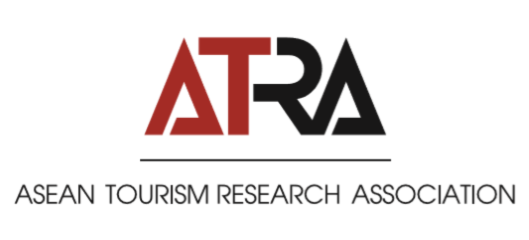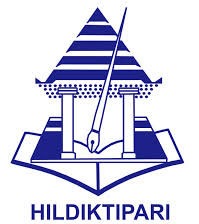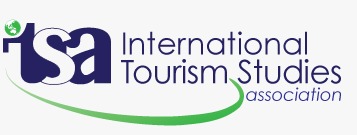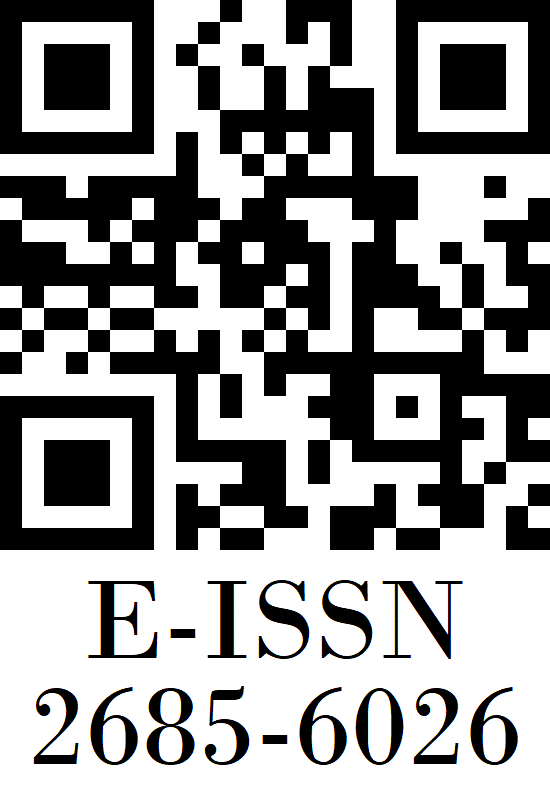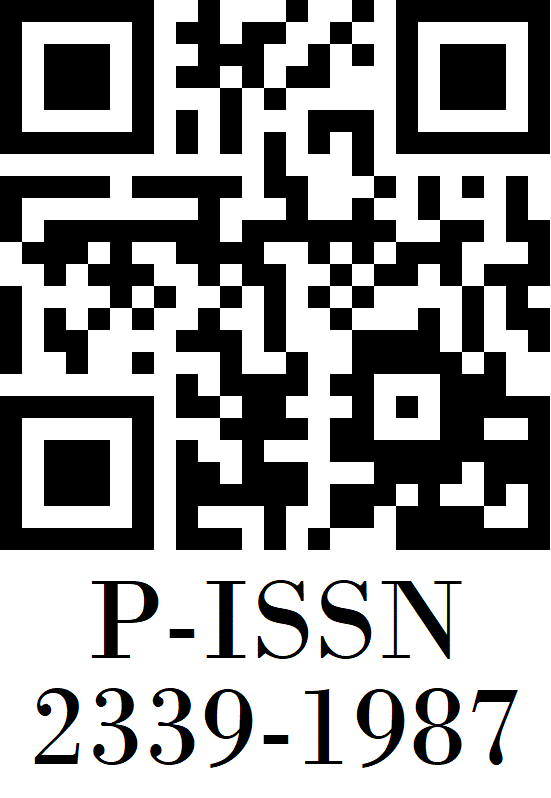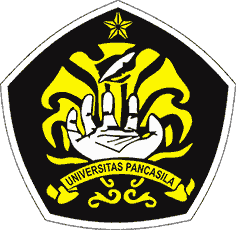TOURIST VILLAGE INNOVATION IN CREATING MANAGEMENT AND SUSTAINABLE MARKETING
DOI:
https://doi.org/10.35814/tourism.v11i2.5392Keywords:
Tourist Village, Innovation, Tourism, Marketing, Management, Tourist Village, Innovation, Tourism, Marketing, ManagementAbstract
The development of tourism in Indonesia is encouraging news. This condition can be seen from the many tourism potentials, such as culture, crafts, culinary, and community activities within the frame of a tourist village. Changes in tourist behavior from mass tourism to alternative tourism provide opportunities for developing tourist villages. However, many tourist villages are still experiencing problems and need to provide benefits to the community. Several issues, such as legality, attractiveness, and marketing, to disagreements with other parties. This study aims to investigate the management of outstanding tourist villages. Qualitative methods combined with innovative diffusion instruments were used in this study. Several remarkable tourist villages were selected to be the objects of this research, including the tourist villages: Tinalah, Importantsari, and Nlanggeran. They collected data in this study using semi-structured interviews. Research informants are several managers of tourist villages and tourists who are visiting. The stages of data analysis in this study used the Miles Huberman method, including data transcription, reduction, coding, categorization, and conclusion. The research findings proved that the managers of outstanding tourist villages constantly innovate. Several innovation diffusion instruments are used as a guide, including innovation, communication channels, time, and legitimacy. The importance of organizations to present innovation is one of the requirements for sustainable management and marketing.
References
Agyeiwaah, E. (2020). Over-tourism and sustainable consumption of resources through sharing: The role of government. International Journal of Tourism Cities, 6(1), 99–116. Scopus. https://doi.org/10.1108/IJTC-06-2019-0078
Aly, M. N., Hamid, N., Suharno, N. E., Kholis, N., & Aroyandini, E. N. (2021). Community involvement and sustainable cave tourism development in tulungagung region. Journal of Environmental Management and Tourism, 12(2), 588–597. Scopus. https://doi.org/10.14505//jemt.v12.2(50).28
Amrutha, V. N., & Geetha, S. N. (2020). A systematic review on green human resource management: Implications for social sustainability. Journal of Cleaner Production, 247, 119131. https://doi.org/10.1016/j.jclepro.2019.119131
Asonitou, S., & Kottara, C. (2019). Sustainable development of skills for the tourism sector and its financial impact. In Strategic Innovative Marketing and Tourism (pp. 1121–1129). Springer.
Baldassarre, B., Keskin, D., Diehl, J. C., Bocken, N., & Calabretta, G. (2020). Implementing sustainable design theory in business practice: A call to action. Journal of Cleaner Production, 273, 123113. https://doi.org/10.1016/j.jclepro.2020.123113
Bell, C., & Ruhanen, L. (2016). The diffusion and adoption of eco-innovations amongst tourism businesses: The role of the social system. Tourism Recreation Research, 41(3), 291–301. https://doi.org/10.1080/02508281.2016.1207881
Bolici, F., Acciarini, C., Marchegiani, L., & Pirolo, L. (2020). Innovation diffusion in tourism: How information about blockchain is exchanged and characterized on twitter. TQM Journal. https://doi.org/10.1108/TQM-01-2020-0016
Creswell, J. & David. (2019). Research Design Qualitative, Quantitative and Mix Methods Approaches. 388–388.
Dearing, J. W. (2009). Applying Diffusion of Innovation Theory to Intervention Development. Research on Social Work Practice, 19(5), 503–518. https://doi.org/10.1177/1049731509335569
Dearing, J. W., & Cox, J. G. (2018). Diffusion Of Innovations Theory, Principles, And Practice. Health Affairs, 37(2), 183–190. https://doi.org/10.1377/hlthaff.2017.1104
Dearing, J. W., & Singhal, A. (2020). New directions for diffusion of innovations research: Dissemination, implementation, and positive deviance. Human Behavior and Emerging Technologies, 2(4), 307–313. https://doi.org/10.1002/hbe2.216
Giantari, I. G. A. K., & Sukaatmadja, I. P. G. (2021). Effects of environmental orientation, green marketing mix and social capital on the competitive advantage of real estate developers in Bali. Property Management. https://doi.org/10.1108/PM-01-2020-0005
González, L. M., Rivero, M. S., & Gallego, J. I. R. (2020). Priorization of public tourism policies of a destination from the identification of its competitive advantages and disadvantages: The case of extremadura. Revista Portuguesa de Estudos Regionais, 53, 69–87. Scopus.
Gracheva, R. G., & Sheludkov, A. V. (2021). Diffusion of Organic Agriculture in Russia: Features and Implications for Rural Development. Regional Research of Russia, 11(4), 578–588. https://doi.org/10.1134/S2079970521040055
Gu, D., Khan, S., Khan, I. U., & Khan, S. U. (2019). Understanding mobile tourism shopping in Pakistan: An integrating framework of innovation diffusion theory and technology acceptance model. Mobile Information Systems, 2019. https://doi.org/10.1155/2019/1490617
H. Demolinggo, R., Damanik, D., Wiweka, K., & Pramania Adnyana, P. (2020). Sustainable Tourist Villages Management Based on Javanese Local Wisdom ‘Memayu Hayuning Bawono’ Best Practice of Desa Wisata Pentingsari, Yogyakarta. International Journal of Tourism & Hospitality Reviews, 7(2), 41–53. https://doi.org/10.18510/ijthr.2020.725
Havadi Nagy, K. X., & Espinosa Segui, A. (2020). Experiences of community-based tourism in Romania: Chances and challenges. Journal of Tourism Analysis, 27(2), 143–163. https://doi.org/10.1108/JTA-08-2019-0033
Hermawan, H. (2017). Dampak Pengembangan Desa Wisata Nglanggeran Terhadap Ekonomi Masyarakat Lokal. III(2), 105–117. https://doi.org/10.31219/osf.io/xhkwv
Hong, J.-W., Kwak, Y.-S., & Kwak, Y.-S. (2016). The effect of diffusion of online culture content on medical tourism: Analysis of keyword. International Journal of Database Theory and Application, 9(11), 293–304. https://doi.org/10.14257/ijdta.2016.9.11.26
Huarng, K.-H., Yu, T. H.-K., & Lai, W. (2015). Innovation and diffusion of high-tech products, services, and systems. Journal of Business Research, 68(11), 2223–2226. https://doi.org/10.1016/j.jbusres.2015.06.001
Hutagalung, H., Purwana, D., Suhud, U., Mukminin, A., & Hamidah, H. (2022). Community Self-Reliance of Rural Tourism in Indonesia: An Interpretative Phenomenological Analysis. Qualitative Report, 27(7), 1151–1168. Scopus. https://doi.org/10.46743/2160-3715/2022.5215
Ismail, H., & Hanafiah, M. M. (2020). A review of sustainable e-waste generation and management: Present and future perspectives. Journal of Environmental Management, 264, 110495. https://doi.org/10.1016/j.jenvman.2020.110495
Jayasundara, C. C. (2021). Adoption of electronic books in a higher education setting: An exploratory case study based on diffusion of innovation and garner’s hype cycle paradigms. Annals of Library and Information Studies, 68(3), 258–267.
Karmanov, M. V., Kiseleva, I. A., Kuznetsov, V. I., Zavrazhin, A. V., & Shubina, I. V. (2020). The process of innovation diffusion and adoption of innovations in the business modelling for travel companies. Journal of Environmental Management and Tourism, 11(2), 346–354. https://doi.org/10.14505/jemt.v11.2(42).13
Kotler, P., & Armstrong, G. (2018). Principles of Marketing 17th Global Edition.
Lesar, L., & Weaver, D. (2021). A Diffusion Perspective on the Discontinuance of Sustainable Tourism Quality Control Tools. Journal of Travel Research. https://doi.org/10.1177/00472875211017232
Ludiyanto, A. (2022). Sejumlah Desa Wisata di Karanganyar Terancam Tutup Karena Hal Ini. Solopos.com. https://www.solopos.com/sejumlah-desa-wisata-di-karanganyar-terancam-tutup-karena-hal-ini-1326038
Miles, M. B., & Huberman, M. A. (1994). Qualitative _Data Analysis.pdf (Second Edi). SAGE Publications Inc.
Moliner, M. A., Sánchez, J., Rodríguez, R. M., & Callarisa, L. (2007). Perceived relationship quality and post-purchase perceived value: An integrative framework (Vol. 41, Issues 11–12, p. 1422). https://doi.org/10.1108/03090560710821233
Mont, O., Palgan, Y. V., Bradley, K., & Zvolska, L. (2020). A decade of the sharing economy: Concepts, users, business and governance perspectives. Journal of Cleaner Production, 269, 122215. https://doi.org/10.1016/j.jclepro.2020.122215
Moreno-Luna, L., Robina-Ramírez, R., Sánchez, M. S. O., & Castro-Serrano, J. (2021). Tourism and sustainability in times of covid-19: The case of Spain. International Journal of Environmental Research and Public Health, 18(4), 1–22. https://doi.org/10.3390/ijerph18041859
Mowforth, M., & Munt, I. (2015). Tourism and sustainability: Development, globalisation and new tourism in the Third World: Fourth edition (p. 456). https://doi.org/10.4324/9781315795348
Muhammad, D., Hanggraito, A. A., Anshori, H. A., & Aisyahdi, nahda F. (2020). Kajian Klasifikasi desa Wisata kabupaten Sleman. Dinas Pariwisata Kabupaten Sleman.
Navarrete, S. D. S., Borini, F. M., & Avrichir, I. (2020). Environmental upgrading and the United Nations Sustainable Development Goals. Journal of Cleaner Production, 264, 121563. https://doi.org/10.1016/j.jclepro.2020.121563
Nave, A., do Paço, A., & Duarte, P. (2021). A systematic literature review on sustainability in the wine tourism industry: Insights and perspectives. International Journal of Wine Business Research. https://doi.org/10.1108/IJWBR-09-2020-0046
Neupane, R., Anup, K. C., Aryal, M., & Rijal, K. (2021). Status of ecotourism in Nepal: A case of Bhadaure-Tamagi village of Panchase area. Environment, Development and Sustainability. https://doi.org/10.1007/s10668-021-01317-z
Nursyabani, F. (2021). Desa Wisata Cimahi Torobosan Kini Terbengkalai. Desa Wisata Cimahi Torobosan Kini Terbengkalai. https://www.ayobandung.com/wisata/pr-79712425/desa-wisata-cimahi-torobosan-kini-terbengkalai
Nuryakin, & Priyo, J. S. (2018). Service quality, trust and customer loyalty: The role of customer satisfaction at the hotel services industry in Indonesia. Quality - Access to Success, 19(166), 50–55. Scopus.
OECD. (2018, March 8). OECD Tourism Trends and Policies 2018. https://www.oecd-ilibrary.org/urban-rural-and-regional-development/oecd-tourism-trends-and-policies-2018_tour-2018-en
Paina, L., Namazzi, G., Tetui, M., Mayora, C., Kananura, R. M., Kiwanuka, S. N., Waiswa, P., Mutebi, A., & Ekirapa-Kiracho, E. (2019). Applying the model of diffusion of innovations to understand facilitators for the implementation of maternal and neonatal health programmes in rural Uganda. Globalization and Health, 15(1), 38–38. https://doi.org/10.1186/s12992-019-0483-9
Parra-Lopez, E., Martínez-gonzález, J. A., & Chinea-Martin, A. (2018). Drivers of the formation of e-loyalty towards tourism destinations. European Journal of Management and Business Economics, 27(1), 66–82. https://doi.org/10.1108/EJMBE-11-2017-0050
Rogers, E. (1983). Diffusion of innovations (3rd ed, p. 453). Free Press ; Collier Macmillan.
Rogers, E. M. (1983). Diffusion of innovations (3rd ed). Free Press ; Collier Macmillan.
Rondović, B., Djuričković, T., & Kašćelan, L. (2019). Drivers of e-business diffusion in tourism: A decision tree approach. Journal of Theoretical and Applied Electronic Commerce Research, 14(1), 30–50. https://doi.org/10.4067/S0718-18762019000100104
Ryan, I., Myers, B., & Mooney, S. (2020). Leader development: A pathway for social change? Leadership, 1742715020980295. https://doi.org/10.1177/1742715020980295
Salindri, Y. A., Sulistyo, A., Annisa, R. N., Hadianto, F., & Arifkusuma, M. B. (2022). Pemberdayaan UKM YAD Blangkon Yogyakarta Melalui Pemasaran Berbasis Digital Sebagai Upaya Menembus Pasar Global. Jurnal Inovasi dan Pengabdian Masyarakat Indonesia, Vol.1No. 4, 41–46.
Schoneveld, G. C. (2020). Sustainable business models for inclusive growth: Towards a conceptual foundation of inclusive business. Journal of Cleaner Production, 277, 124062. https://doi.org/10.1016/j.jclepro.2020.124062
Shrivastava, P., Stafford Smith, M., O’Brien, K., & Zsolnai, L. (2020). Transforming Sustainability Science to Generate Positive Social and Environmental Change Globally. One Earth, 2(4), 329–340. https://doi.org/10.1016/j.oneear.2020.04.010
Singh, E., Milne, S., & Hull, J. (2012). Use of Mixed-Methods Case Study to Research Sustainable Tourism Development in South Pacific SIDS. In K. F. Hyde, C. Ryan, & A. G. Woodside (Eds.), Field Guide to Case Study Research in Tourism, Hospitality and Leisure (Vol. 6, pp. 457–478). Emerald Group Publishing Limited. https://doi.org/10.1108/S1871-3173(2012)0000006028
Sulistyo, A. (2021). Penerapan Tourism Marketing 3.0 Pada Desa Wisata Tinalah Dalam Upaya Meningkatkan Kualitas Produk Wisata. Journal of Tourism Destination and Attraction, 9(3), 1–8.
Sulistyo, A., Danella, D., & Susiyanto, S. (2023). Application of the Concept of Diffusion of Innovations in Tourism Support Business Sustainability (Study at Loempia Lanny Semarang. Journal Majalah Bisnis & IPTEK, 16(1), 82–96. https://doi.org/10.55208/bistek.v16i1.364
Sulistyo, A., Fatmawati, I., & Nuryakin, N. (2022). Creating Sustainable Tourism Through Innovation (Digital-Based Marketing In The Tinalah Rural Tourism). Proceedings of the International Academic Conference on Tourism (INTACT), Advances in Social Science, Education and Humanities Research, 400–416. https://doi.org/10.2991/978-2-494069-73-2_29
Sumani, S., Awwaliyah, I. N., Suryaningsih, I. B., & Nugraha, K. S. W. (2022). Nautical Tourism Development Model Based on Coastal Community Empowerment and Financial Literacy in Indonesia. Journal of Environmental Management and Tourism, 13(6), 1740–1751. Scopus. https://doi.org/10.14505/jemt.v13.6(62).21
Sun, K., Cao, X., & Xing, Z. (2021). Can the diffusion modes of green technology affect the enterprise’s technology diffusion network towards sustainable development of hospitality and tourism industry in china? Sustainability (Switzerland), 13(16). https://doi.org/10.3390/su13169266
Wirdayanti, A., Asri, A., Anggono, B. D., Hartoyo, D. R., Indarti, E., Gautama, H., Esti, H., Harefa, K., Minsia, M., Rumayar, M., Indrijatiningrum, M., Susanti, T., & Ariani, V. (2019). Pedoman Desa Wisata. Kementerian Koordinasi Bidang Kemaritiman dan Investas.
Wu, C.-F. (2016). The relationship between business ethics diffusion, knowledge sharing and service innovation. Management Decision, 54(6), 1343–1358. https://doi.org/10.1108/MD-01-2016-0009
Yin, R. K. (2003). Case Study Research ; Design and Methods (Third, Vol. 5).




